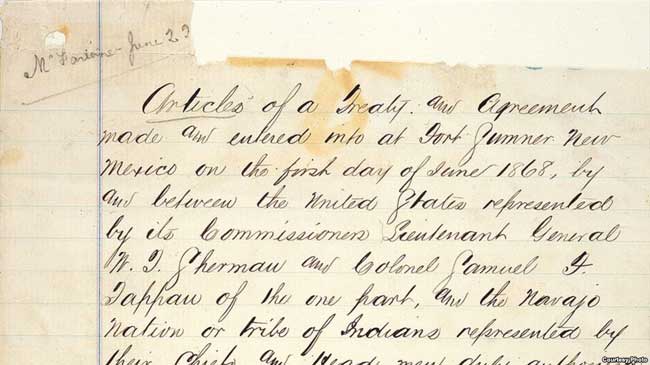Part 4: Teamwork Makes a Difficult Job Easier
Louis St. Germaine, a long-time criminal investigator for the Navajo Nation, has worked closely with FBI agents over the years and recalls the surprise many of them express when first coming to Indian Country.
“Sometimes agents expect to see street numbers and paved roads,” said St. Germaine, who was born and raised on the reservation. “Out here, you make one wrong turn at an isolated place and go a few hundred feet and you can get very lost very quickly.”
“And when the sun goes down,” said Malcolm Leslie, another Navajo criminal investigator, “in some places on the reservation you can’t see your hand in front of your face.”
From the most basic task of finding a crime scene to more complicated matters regarding language and cultural barriers, FBI agents in Indian Country depend on their local, federal, and tribal law enforcement partners. And our partners rely equally on us—for expertise, training, and other resources.
“I don’t think one can do without the other,” said St. Germaine. “Navajo Nation investigators—we’ve been here a long time. We are familiar with the area, the crimes, and the people. The FBI is well skilled in doing investigations. So we combine our talents, and it works well.”
|
|
St. Germaine was one of the original members of the first Safe Trails Task Force, which the FBI created in 1994 on the Navajo Reservation and has since expanded to 15 locations around the country. The idea is to unite the Bureau with other federal, local, and tribal law enforcement agencies to combat Indian Country crime.
Through the task force and other initiatives, the FBI provides invaluable training and equipment to tribal law enforcement. “It has helped us do our job,” St. Germaine said. “We are challenged financially on the Navajo Nation. The FBI supplies us with vehicles and other equipment. Without that contribution,” he added, “I think we would be in real serious trouble.”
“And without our tribal partners,” said Special Agent Lenny Johns, who supervises our Santa Fe Resident Agency, “it would be virtually impossible for the Bureau to accomplish its mission in Indian Country. Many times it’s just one FBI agent on the reservation dealing with a complex crime scene. The tribal criminal investigators and evidence technicians are critical to the process of conducting interviews and collecting evidence. Without them, we’d get very little traction.”
“The FBI brings resources that we’re in dire need of,” added veteran criminal investigator Leslie. “But they also bring knowledge.” Leslie has received a variety of FBI training, both in the classroom and on the job at crime scenes.
|
|
Donovan Becenti, a Navajo Nation crime scene technician, has processed many crime scenes with the FBI’s Evidence Response Team (ERT) and has benefited from FBI training as well.
“The partnership is great,” Becenti said. “ERT out of Albuquerque is where I’ve gotten most of my training. Without them, I wouldn’t be where I am today as far as my skill level. And they also provide equipment—evidence collection supplies and whatever else I need to help get the job done.”
Becenti was recently presented with an FBI Director’s Certificate for his many years of helping ERT process crime scenes on the Navajo reservation. “When you work alongside someone for 12 straight hours on a homicide scene in freezing fog and sub-zero temperatures,” he said, “it builds mutual trust and respect.”
Source: FBI







